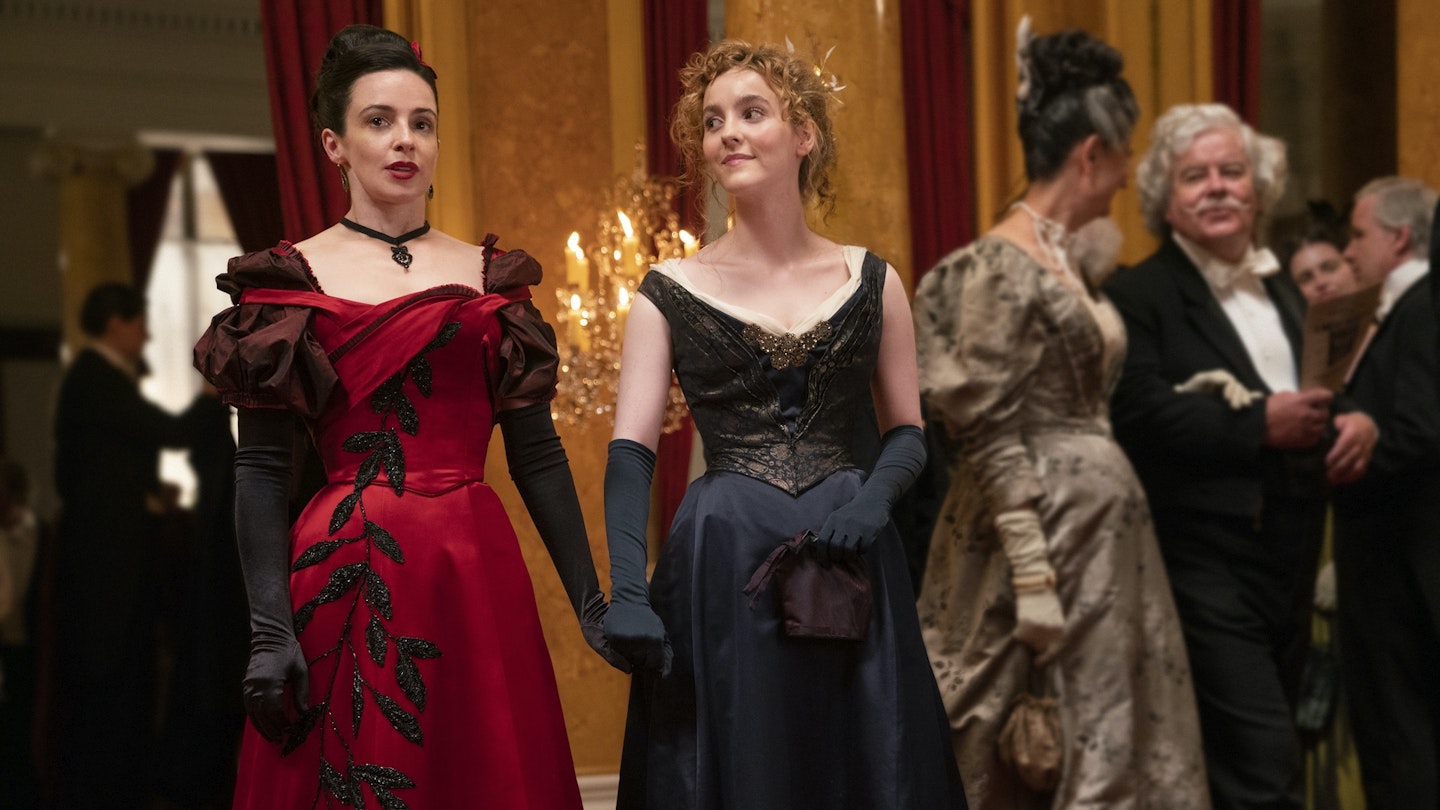HBO won a frenzied bidding war to make The Nevers, and it’s easy to see why everyone wanted it. The premise — a female-skewing, Victorian X-Men from the creator of Buffy The Vampire Slayer — is rich in possibility for visual dazzle and a fresh take on an era where men’s stories too often dominate. And partly, it delivers on that promise. But on this evidence, the match was an uneasy one even before Joss Whedon left the show (replaced by Philippa Goslett), because HBO’s fondness for sex and violence sits awkwardly alongside a story that otherwise skews teenage.
The cast are a likeable collection of up-and-comers, led by Laura Donnelly’s abrasive, decisive Amalia True, leader of a group of ‘Touched’ women with special powers. Amalia sees glimpses of the future — though not always in a way that helps — and has an overarching sense of mission that she frequently tries to forget with hard drinking and casual sex. Penance Adair (Ann Skelly) is her best friend and a Q-like mechanical genius. Together they lead a ragtag group of Touched, attempting to reach others of their kind who are being mistreated by superstitious families or pursued by sinister strangers. After rescuing one new recruit from grotesque kidnappers, True investigates a disappearance alongside boxer-turned-detective Frank Mundi (Ben Chaplin) and contends with a homicidal Touched, Maladie (Amy Manson), who has her own strange priorities.

The first episodes set up not just this plot but many other moving parts, because we haven’t even mentioned James Norton’s entertaining roué, Olivia Williams’ do-gooder, Pip Torrens’ hostile minister and Nick Frost’s Beggar King. All great people, but the show quickly reaches the point where you might wish that we were focused only on a few monster-fighting kids in a school library, or a motley crew of mercenaries on a tiny starship, rather than half the population of Victorian London. And amid all these crowds there’s very little time, apparently, to develop the non-white members of the supporting cast to any real degree: Zackary Momoh’s supernaturally gifted doctor is interesting but side-lined, while Kiran Sonia Sawar is mostly stuck delivering exposition.
After a rocky pilot the show begins to feel like it’s finding its feet
The show does at least deliver on that visual dazzle. Everything is beautifully staged — a presumably enormous costume budget is matched by canny use of locations and solid effects — and there’s always fun in seeing superheroics out of their natural time, the combination of period dress and barmy effects still feeling fresher than the usual Lycra. Yet the general tone of plucky adventures sits awkwardly with the random sexposition and often brutal violence. There are grotesque monsters and also a prim, young schoolgirl who happens to be a giant; delicate flirtations across class divides, and horrifying experiments. It can feel like the show’s trying to be all things to all women, rather than having a really strong sense of what it wants to say, or as if an attempt to be more HBO has resulted in unnatural grafts of nudity onto a broadcast channel form.
That’s not to say that it’s bad, just unwieldy. After a rocky pilot the show begins to feel like it’s finding its feet, and it may yet become a gripping comic-book-style epic: J. Michael Straczynski's Rising Stars meets The League Of Extraordinary Gentlemen, perhaps. Never say never.
